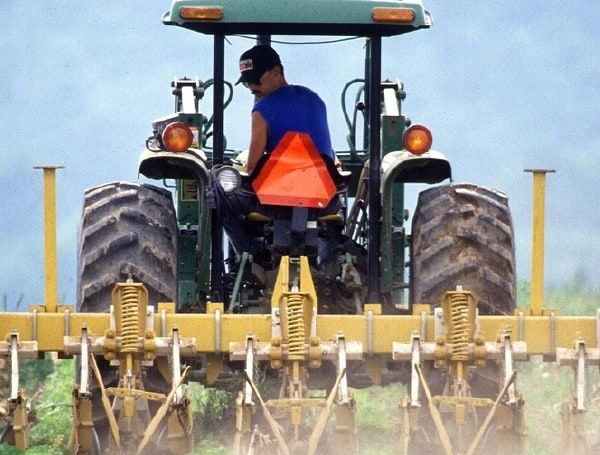U.S. Senators Tammy Baldwin (D-WI) and John Thune (R-SD), as well as Congressman Ron Kind (D-WI), are leading a bipartisan group of their colleagues in urging the U.S. Department of Treasury and the Small Business Administration (SBA) to issue new clarifications that would ensure more farmers and ranchers are eligible for loans through the Paycheck Protection Program (PPP). Baldwin, Thune, and Kind are joined in this bipartisan effort by Senators Joni Ernst (R-IA) and John Hoeven (R-ND).
Many farmers, ranchers and agriculture producers were falling through the cracks in the Paycheck Protection Program when it was first created by the SBA last year.
That’s why Senators Baldwin and Thune’s bipartisan legislation was included in the recently passed Economic Aid Act to increase the amount of small and struggling farmers eligible to receive a loan from the PPP by allowing them to use gross income to calculate their loan award.
However, many farmers and ranchers are organized as partnerships or limited liability companies, which are taxed differently than other farm and ranch entities. These agricultural producers have been unable to apply for loans under the new calculation because of the SBA’s interpretation of eligibility for partnerships or limited liability companies.
Last week, the lawmakers urged Treasury Secretary Janet Yellen and SBA Acting Administrator Tami Perriello to act swiftly to clarify that all farmers and ranchers reporting self-employment income on tax form Schedule F can access these loans through this new eligibility calculation.
This new bipartisan push comes after Senators Baldwin and Thune urged the Treasury Department and SBA in January to make more farmers eligible for the second round of PPP funds.
“I’ve heard from family farmers who are fighting every day to make it through this crisis,” said Senator Baldwin. “They are falling through the cracks in the Paycheck Protection Program, and that’s not right. Now more than ever, we must get federal support to the Wisconsin family farmers who need it. I’m working with Senator Thune to quickly take action and make sure farmers have better access to the PPP, because doing right by our farmers and their communities isn’t a partisan fight—it’s just common sense.”
Many farmers, ranchers and agriculture producers were falling through the cracks in the Paycheck Protection Program when it was first created by the SBA last year.
That’s why Senators Baldwin and Thune’s bipartisan legislation was included in the recently passed Economic Aid Act to increase the amount of small and struggling farmers eligible to receive a loan from the PPP by allowing them to use gross income to calculate their loan award.
However, many farmers and ranchers are organized as partnerships or limited liability companies, which are taxed differently than other farm and ranch entities. These agricultural producers have been unable to apply for loans under the new calculation because of the SBA’s interpretation of eligibility for partnerships or limited liability companies.
Last week, the lawmakers urged Treasury Secretary Janet Yellen and SBA Acting Administrator Tami Perriello to act swiftly to clarify that all farmers and ranchers reporting self-employment income on tax form Schedule F can access these loans through this new eligibility calculation.
This new bipartisan push comes after Senators Baldwin and Thune urged the Treasury Department and SBA in January to make more farmers eligible for the second round of PPP funds.
On April 24, 2020, the Small Business Administration (SBA) and U.S. Department of the Treasury issued guidance for how producers filing a Schedule F must calculate their PPP loan award. It requires anyone without employees filing a Schedule F to use the following calculation:
- Use the net income amount from 2019, up to $100,000.
- Divide the net income by 12 and multiply by 2.5.
- Add the outstanding amount of any Economic Injury Disaster Loan (EIDL) made between January 31, 2020, and April 3, 2020, that the borrower seeks to refinance, minus the EIDL advance, which is a grant.
Under this guidance, producers filing a Schedule F and showing a negative net income are ineligible to obtain a PPP loan award. To help ensure that more producers can obtain a PPP loan, this legislation would allow producers filing a Schedule F to use their 2019 gross income (up to $100,000) when calculating their PPP loan rather than net income since many producers showed a net loss on their 2019 Schedule F due to the wet planting season and low commodity prices.

